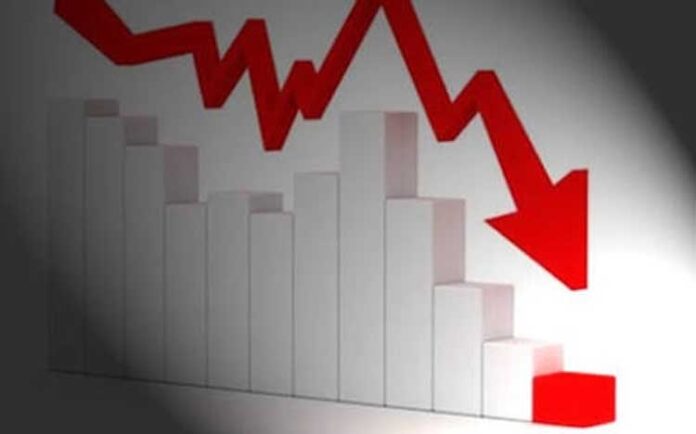Maria Irene
The recent Australian inflation report reveals a decline in the annual inflation rate from a peak of 8.4% in December to 6.8%. This has ignited a lively debate among economists and the public, with concerns about the potential impact of rising interest rates and the overall state of the economy. While some argue that inflation is a regressive tax affecting everyone, others contend that the real issue is loose credit and high levels of leverage.
Economist Warren Hogan criticized the focus on interest rates, asserting that inflation is the real problem. He described inflation as “the most regressive tax we have” and expressed confusion as to why progressives are so tolerant of it. However, other Twitter users challenged Hogan’s views. User @aus_econ questioned whether it was fair to criticize the current mechanism for addressing inflation while accepting its negative effects. Other users, such as @broc_samson, accused progressives of prioritizing the wealth effect of rising house prices above all else.
The debate continued with users like @Dante57112893 pointing out the contradictions in supporting expansive immigration policies while simultaneously advocating for net zero emissions. User @timewarp999 noted that increasing interest rates is a painful but necessary measure to change spending behavior. In response to the ongoing discussion, @0x_Templar argued that the real issue is “sloppy loose credit” in Australia, which has led to high levels of leverage and a lack of savings.
The inflation report has also raised concerns about the early signs of mortgage stress in the country. As the effects of 10 consecutive interest rate increases compound growing cost of living pressures, banks are now proactively reaching out to customers who are at risk of struggling with their repayments. National Australia Bank’s group executive of personal banking, Rachel Slade, confirmed that the number of customers reporting financial difficulties is “just starting to tick up.” While there are no significant spikes in arrears at the moment, Slade emphasized the need to focus on individual customers and identify those who are most at risk.
The decline in the annual inflation rate has eased pressure on the Reserve Bank of Australia (RBA) to hike interest rates next week. Financial markets are pricing in a greater than 90% chance of rates staying on hold in April. The Australian Bureau of Statistics’ monthly consumer price index showed that most categories of goods and services recorded smaller price increases than they had the month before. The most significant contributors to the annual increase in prices were housing (+9.9%), food and non-alcoholic beverages (+8.0%), transport (+5.6%), and recreation and culture (+6.4%).
Despite these concerns, the Australian sharemarket edged up on Wednesday, with materials and energy companies climbing as inflation figures came in softer than expected. The S&P/ASX 200 closed with a 0.2% increase, buoyed by gains in heavyweights like BHP and Fortescue. However, healthcare and information technology sectors ended in the red, with Resmed and Computershare both shedding 1.2%.
As the world faces multiple overlapping crises, including a pandemic that has crippled economies and strained public health systems, and Russia’s invasion of Ukraine disrupting global supply chains and trade ties, the threat of a more protracted economic slump looms large. The ongoing debate sparked by the Australian inflation report highlights the need for a comprehensive and nuanced approach to address the various challenges the nation and the global economy are facing.
In mixed news for renters, rents were up an average 4.8% over the past year, but that had not accelerated from the previous month’s reading. Another major cost for households, food, saw much stickier price increases.
Overall, he Australian inflation report has exposed underlying concerns and disagreements on economic policy and interest rates. The decline in the annual inflation rate has provided some relief to the RBA, but the ongoing debate surrounding interest rates, loose credit, and leverage demonstrates that there is still much work to be done to address these issues comprehensively.
As Australia navigates the global crises of the COVID-19 pandemic and the geopolitical tensions arising from Russia’s invasion of Ukraine, the nation will need to find a balanced approach to monetary policy that effectively tackles inflation without causing undue hardship to its citizens. This will require open dialogue and cooperation among economists, policymakers, and the public to develop solutions that address the root causes of these economic challenges.
In the meantime, it is crucial for the Australian government and financial institutions to closely monitor the early signs of mortgage stress and support those who are struggling with their repayments. By focusing on individual customers and identifying those most at risk, banks can help prevent a significant rise in arrears and minimize the impact of rising interest rates on vulnerable households.
Additionally, the Australian government must continue to invest in initiatives that address both immediate and long-term challenges such as housing affordability, the cost of living, and climate change. By pursuing sustainable and inclusive economic growth, Australia can ensure its citizens are better prepared to face the ongoing challenges of a rapidly changing global landscape.
In conclusion, the recent Australian inflation report has sparked a heated debate on economic policy and interest rates, highlighting the complexities of addressing these issues in a rapidly evolving global context. As the nation grapples with these challenges, it is vital for all stakeholders to come together and develop a comprehensive and nuanced approach that effectively tackles inflation, promotes sustainable growth, and protects the most vulnerable members of society.


